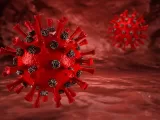
AI Model Forecasts Patient Outcomes Across Diverse Cancer Types
January 29, 2024Investigators at the UCLA Health Jonsson Comprehensive Cancer Center have created an artificial intelligence (AI) model leveraging epigenetic factors, demonstrating successful prediction of patient outcomes across multiple cancer types.
The researchers observed that by analyzing the gene expression patterns of epigenetic factors—elements influencing gene activation or repression—in tumors, they could effectively classify them into distinct groups, outperforming traditional measures like cancer grade and stage in predicting patient outcomes across diverse cancer types.
These findings, detailed in Communications Biology, also provide a foundation for the development of targeted therapies focused on modulating epigenetic factors in cancer treatment, including histone acetyltransferases and SWI/SNF chromatin remodelers.
While past studies have revealed that mutations in genes encoding epigenetic factors can impact an individual’s susceptibility to cancer, there has been limited knowledge regarding how the levels of these factors influence cancer progression. This gap in understanding is critical for a comprehensive grasp of how epigenetics contributes to patient outcomes, as highlighted by Coller.
To explore the potential relationship between epigenetic patterns and clinical outcomes, the researchers conducted an analysis of the expression patterns of 720 epigenetic factors, classifying tumors from 24 different cancer types into distinct clusters.
Among the 24 adult cancer types, the team discovered that for 10 of these cancers, the clusters were linked to significant differences in patient outcomes, encompassing progression-free survival, disease-specific survival, and overall survival.
This observation was particularly noteworthy for adrenocortical carcinoma, kidney renal clear cell carcinoma, brain lower grade glioma, liver hepatocellular carcinoma, and lung adenocarcinoma, where the differences were significant across all survival measurements.
Clusters associated with poor outcomes tended to exhibit higher cancer stage, larger tumor size, or more advanced indicators of spread.
Mithun Mitra, co-senior author of the study and an associate project scientist in the Coller laboratory, remarked, “We observed that the prognostic effectiveness of an epigenetic factor relied on the tissue-of-origin of the cancer type. This correlation was even evident in the few pediatric cancer types we examined. Such insights may prove valuable in determining the cancer-specific relevance of therapeutically targeting these factors.”
Subsequently, the team utilized the gene expression levels of epigenetic factors to train and test an AI model designed to predict patient outcomes. The model was specifically tailored to forecast potential outcomes for the five cancer types exhibiting significant differences in survival measurements.
The researchers observed that the AI model was effective in categorizing patients with the identified five cancer types into two groups: one with a notably higher likelihood of favorable outcomes and another with a higher likelihood of unfavorable outcomes.
Additionally, they noted a significant overlap between the genes deemed most crucial for the AI model and the cluster-defining signature genes.
Mithun Mitra stated, “The pan-cancer AI model is trained and tested on the adult patients from the TCGA cohort, and it would be beneficial to assess its broad applicability by testing it on other independent datasets. Similar epigenetic factor-based models could be developed for pediatric cancers to explore the decision-making factors compared to the models constructed for adult cancers.”
“Our research serves as a guide for the development of similar AI models, utilizing publicly available lists of prognostic epigenetic factors,” stated Michael Cheng, the study’s first author and a graduate student in the Bioinformatics Interdepartmental Program at UCLA. “This roadmap outlines the identification of influential factors in various cancer types and holds promising potential for predicting specific targets in cancer treatment.”
The study received partial funding from grants provided by the National Cancer Institute, Cancer Research Institute, Melanoma Research Alliance, Melanoma Research Foundation, National Institutes of Health, and the UCLA Spore in Prostate Cancer.
Cheng, M. W., et al. (2023). Pan-cancer landscape of epigenetic factor expression predicts tumor outcome. Communications Biology. doi.org/10.1038/s42003-023-05459-w.


